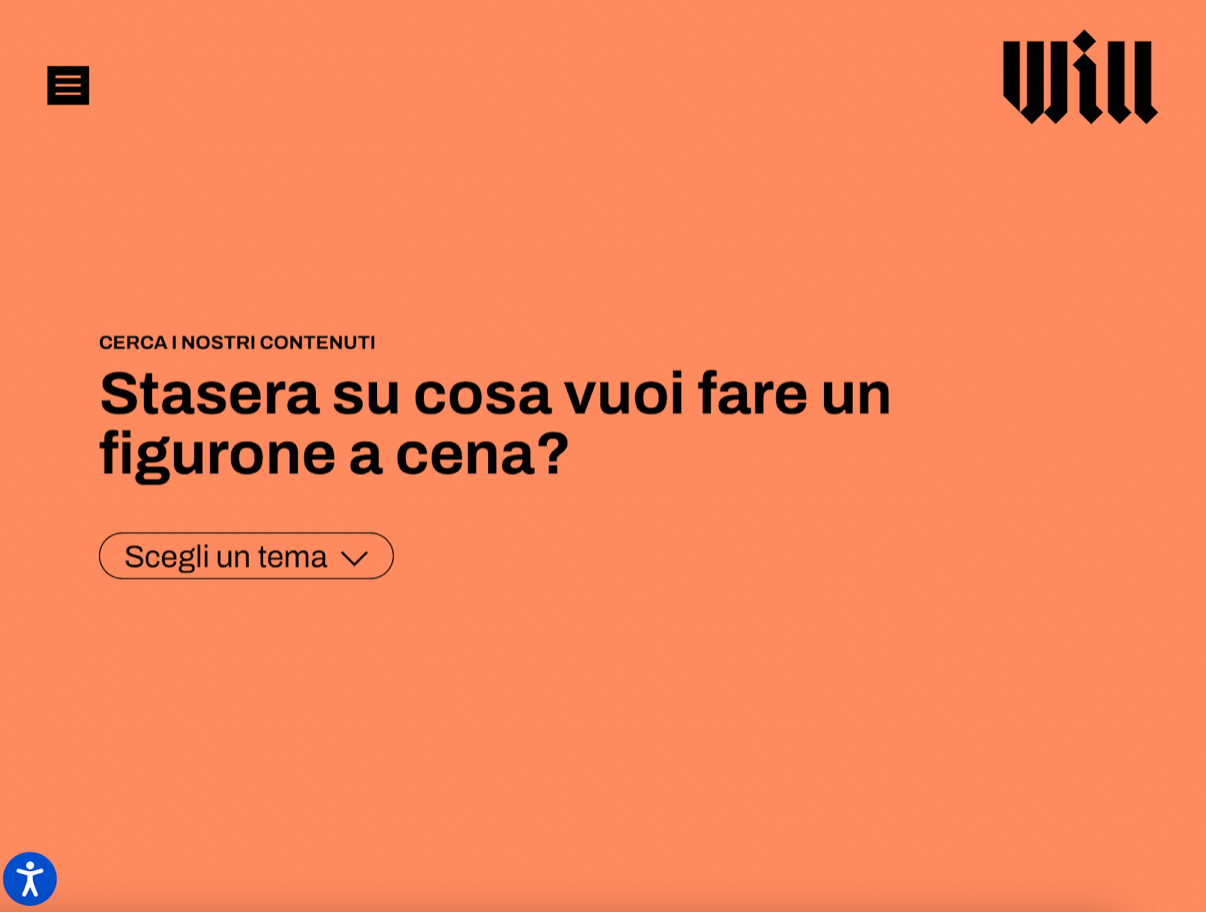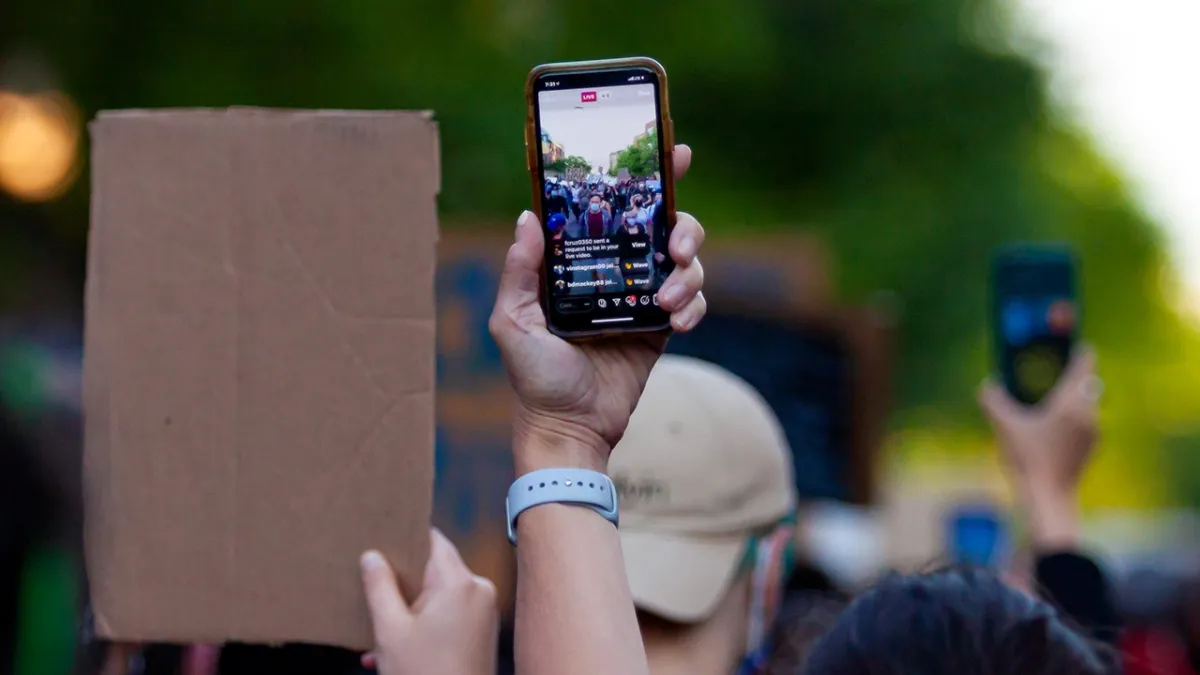Brut, Vakita, Know Media, Loopsider: these are only a fraction of the new landscape of online media targeting Gen-Z. They have all been created within the past decade, and despite their catering to audiences in diverse countries and languages, they are linked together through several features.
The power of visual and concise content for Gen-Z
The first, unsurprisingly, is their presence on social media. They have all understood the formats that will succeed in attracting Gen Z. They post several short and dynamic videos a day, most of which link to more in-depth stories on the media's respective websites, turning the news into a kind of series to be followed. Most of them also heavily rely on graphics, colors, and Instagram carousels (features allowing you to publish a post in the form of a slideshow) to capture the attention of Gen-Z by presenting information in a more novel and entertaining manner.
Will Media's website offers an interactive interface with humoristic questions like "On what topic do you want to make a great impression at dinner tonight?", to keep Gen-Z readers engaged. A list of topics unfolds, allowing users to find specific content. The website then shows abstracts of the latest works on the topic, redirecting the user to platforms like social media where videos, podcasts, or graphics on the topic can be found. Despite the option of a simpler search engine, the clever concept, visuals, and witty headlines help avoid audience loss through social media scrolling.

In recent years, new media outlets such as Brut have gained a massive following among Gen-Z due to their unique approach to content creation. These outlets have focused on producing highly visual and concise content that is easy for viewers to consume and share, with interviews most often conducted in a conversational tone making them more engaging for the audience. They also cover a wide range of topics, with a focus on social and climate-related issues including ecology, feminism, LGBTQ+-related issues, and immigration. The sites combine lighter stories, testimonials, on-the-ground reports, and expert interviews.
Activism and Social Responsibility
Most of these media are purely informative, but some such as Vakita, are also activists. Vakita, a newer media outlet founded by Hugo Clément in late 2022, has found success with Gen-Z by taking a more active role in the issues they report on in addition to informative reporting, Vakita also creates fundraisers and petitions to directly support the people and issues they cover. This level of activism resonates with Gen-Z's desire for action and responsibility in addressing important social and environmental issues. As a result, Vakita has already amassed 196,000 followers on Instagram in a short period of time, showcasing the effectiveness of this approach with younger audiences.
Engaging Tone and Authenticity
Another key aspect of these media outlets is their aim to engage a generation that has turned away from traditional actors. They do this by adopting a conversational tone in their reporting, making the content feel more relatable and engaging. Additionally, their focus on social media has allowed them to build a large following and frequently interact with their audience.
Both Brut and Loopsider, originally French start-ups, have managed to expand their platforms into other languages and continents to broaden their audiences - a bet that has paid off for Brut, for example, which had 20 billion views worldwide in 2022, while being the leading source of information on social networks and claiming to reach 100% of 15-34 year-olds in France.
Engaging a generation turned away from traditional actors
Vakita strongly relies on the idea of audience participation. The medium’s success rests on the bet that its followers will feel concerned enough about a particular environmental or social issue to send an alert to reporters. The Vakita team also took the ambitious gamble of making its full investigative content available only on a subscription basis, arguing that at a rate of 5 euros per month, its audience could guarantee a free medium. With all the free content available to Gen-Z on the one hand and the search for authenticity that characterizes the generation on the other, it will take some time to assess whether the gamble has paid off.
One had a radically different approach both in format and content: The Know media. Popular in the US and UK, their concept consists of a daily newsletter bringing to their readers uplifting news, to keep informed all the while not being overwhelmed.

This approach may seem more superficial at first glance as uplifting news unfortunately only represents a fraction of the daily information available. However, The Know media have a rapidly growing social media presence with 100 000 followers on Instagram, and clearly are on to something, as both the newsletters format and solutions journalism reversing the narrative seem to be increasingly successful with Gen-Z.
Addressing Mental Health
In a world where mental health is increasingly in the spotlight, a newsletter with good news might be the way to go about your day. In addition to social and climate issues, Gen-Z tends to follow information related to mental health. A medium that includes good news or solutions journalism could thus be the way to retain its younger audience.
Building Meaningful Relationships with Gen Z
In order to attract and engage Gen Z, media companies must prioritize certain elements, such as authenticity, transparency, social responsibility, and interactive and personalized content. While embracing these principles, media companies should still maintain a high standard of information and avoid trivializing or oversimplifying complex issues.
By creating a sense of trust and connection with their audience, media companies can encourage Gen-Z to engage with positive content, as demonstrated by the success of the Know Newsletter. This can be achieved by involving the audience in the storytelling process as with the tips sent to Vakita, offering personalized experiences, and addressing social justice and environmental issues that are important to younger generations. By implementing these strategies and continuing to evolve, media companies can build meaningful relationships with Gen Z and contribute to a more informed, engaged, and empowered society.


